Horse Manure - Why so 'good' I wonder?
I'm sure there is "science" that discusses (no matter how difficult to follow) and explains (if 'you' can read between the "science"), why horse (or other) manure is "good" worm food. However...
Reading these threads: http://forums.gardenweb.com/forums/load/verm/msg0813521414920.html?22
and
http://forums.gardenweb.com/forums/load/verm/msg051334334178.html?21
Has me trying to understand EXACTLY why horse manure is such "good" worm food.
First let me say that "scientific" explanation isn't necessary if the animal (in this case worms) eats the "thing" in their wild environment. It is their FOOD! is 'explanation' enough. Nonetheless, "why" is a reasonable question when one is considering substitutes for their natural foods. (The reasons for considering substitutes are many. I don't intend to discuss those here.)
I think "why" should always be associated with "what", as in "Why do you care about WHAT?" In other words, we should ask the question "Why" only in the context of "what" we are trying to "get". In this case "compost".
Coming off the realization that what one reads in most places as "good" worm food, is actually "pre-food", not "actual" food, I am beginning to get a better understanding of why horse manure might be the "best" worm food when one wants to make "compost". (The "what" to which I referred.)
On a philosophicaal level I am quite loathe to use the phrase "known facts". However, I really don't want to let 'philosophy' cloud the issue here. Therefore, let me state the "known" about what worms eat:
Micro-organisms like bacteria and mold.
It has become clear to me through both personal observation and reading that "kitchen scraps" are actually not worm food, but rather worm "pre-food". They have not broken down to elements that the worms CAN eat. YET... horse manure is not only "ready-to-eat", (here after "RTE"), but the 'end product' (think of the pun there :) ), is essentially a single step from "poop" to "compost". Here is, in my OPINION, "why".
Most would readily accept - and readily proclaim - that horse poop is "full" of micro-organisms from the horse's gut. However, if "it" were that simple, other 'stuff' wouldn't be "pre-food", it would be RTE food. NOTHING we eat has NO micro-organisms on it. Put in the converse: EVERYTHING we eat has micro-organisms on it. Therefore, EVERYTHING should be at least "pretty good" RTE food. It isn't. I think horse manure IS RTE food because there is almost NOTHING else in horse poop BUT micro-organisms AND...
"COMPOST"
In other words, when the worms have eaten all of the micro-organisms in the horse manure, what is left that has NOT gone through their guts, (the undigested horse food), IS "compost". Nothing more needs to happen to it in order for it to become "what" we want.
Some might be saying: "Yabbut" (yeah but), that's true with everything I put in my worm bin." I would respond to that comment: "Au contrare". I disagree. Those other "pre-foods" HAVE to FIRST be broken down into "something" the worms can eat - horse manure does not - and SOME of what is left is NOT "what" we want - "compost".
More succinctly put:
Horse manure is the "best" worm food because it is made up of only two "things"; RTE worm food - micro-organisms - and the 'thing' we want - compost. Everything else we feed them is much more complex "food" that 1) has to be first broken down into RTE worm food, and 2) Has other "stuff" in it besides worm food and "compost".
Of course the process as a whole is more complex than this simple explanation. However, I would argue vigorously that most of that 'complexity' is more important for "science" than it is for us worm-growers. The "importance" - in my OPINION - of understanding WHY horse manure is such good food, clears the haze of "complexity" away from the process we enjoy, and allows us to focus on 'the big picture' instead of being lost in the 'trees' of "science" unable to see the 'forest' of reality.
Some will disagree with the above . However, I have always been a 'lumper', not a 'splitter'. I have always tried to diffuse the obfuscating "scientific" BS, with the beauty of Science, which is simplicity and clarity. Clarity, not relegated to the elite "priests of knowledge", but clarity to the Common Man. The gift that is Science is clarity and understanding. The religion that is science RELIES on "complexity" to obfuscate reality and understanding so that the priests must be 'consulted' in order for the Common Man to have "access" to "knowledge".
Horse poop is good worm food, and I am pretty sure I know why. Knowing why affords me peace because I can have greater success in what I do in my daily life. "It" is simple in spite of what priests and their acolytes shriek from their ivory towers.
Paul
Comments (27)
pskvorc
Original Author9 years agolast modified: 9 years ago"Fair interpretation?"
Yes.
The "other stuff" left after not RTE worm food is used is some of the 'detail' that I didn't particularly want to 'get into'. Primarily because of the potential "one man's floor is another man's ceiling" persepctives.
WHATEVER is "left over" after worms eat the digested "pre-food" would be something SOMEONE could legitimately call "compost". In fact, in light of the theory of entropy, I might argue that "everything" is ultimately "compost", hence my reticence to engage that subject. My opinion on the "goodness" of horse manure as worm food was based (at least in part) on looking at the "compost" produced by worms eating horse manure: It looks A LOT like horse manure without the "sticky stuff".
That in turn lead to "thinking" about what horse manure WAS.Which - skipping to the 'chase scene' - ultimately lead to the above 'thesis'.
I disagree that that OP was "complex". "Wordy". "Not brief". "Too Long". "Not Succinct". Those descriptors (and more) I could agree with. "Complex".., nah.
Paul
This post was edited by pskvorc on Wed, May 14, 14 at 15:49
Related Professionals
Wake Forest Landscape Contractors · Hannibal Landscape Contractors · Hickory Hills Landscape Contractors · Hilton Head Island Landscape Contractors · Four Corners Landscape Contractors · Ansonia Landscape Contractors · Norwood Stone, Pavers & Concrete · Alamo General Contractors · Delhi General Contractors · Highland City General Contractors · Makakilo General Contractors · River Edge General Contractors · Riverdale General Contractors · San Marcos General Contractors · Towson General Contractors11otis
9 years agolast modified: 9 years agoThat is why IMHO worm compost is better than worm castings because of all the other stuff worm compost has. Note: well composted worm compost, meaning no uncomposted stuff still in the mix. Castings is .....well, just castings. Even newspaper can become castings. I have seen worm droppings that were clearly newspaper with the colour of newspaper. That was in a bin I starved, trying to get rid of spring tails.
mendopete
9 years agolast modified: 9 years agoI enjoy your posts because you look at things differently than I do. That is good. I am much more the philosopher-type. I am also a keen observer.
My random thoughts.
Any manure will be eaten by worms, but it all must compost a little prior to worm consumption. Some longer than others. From what I have read, rabbit and horse dung are the most "worm-ready". Even in a "hot" bin it takes a few days for the worms to enter fresh horse manure. It will be black, fluffy, and unrecognizable in 10-14 days.
Hay " passes through" horse quickly leaving lots of nutrition in the dung. My dogs like to eat it (and roll in it).
Nutritional value of horse manure will probably vary, depending on feedstock. I feed an alpha mix, some feed grain, and some horses graze.
It is written that horse manure is the perfect combination of carbon and nitrogen for worms. It can be used straight from the horse with no added bedding.
Vermicompost versus castings. I often read that what we have after harvest is VC, a mixture of castings and compost. VC occurs in my bin used for kitchen scraps and diverse food. CASTINGS are produced in my horse manure bins. I would ESTIMATE I get a 90% reduction in volume. The end result is probably 95% castings. A few twigs are left. along with some rocks and VERY fine soil. Some debris comes attached to the manure. Honestly, I wish I had more VC for the garden to add structure. Castings are great for teas, topdressing, starter mix ect.. I have added lots of castings to garden and planter mixes. I like it in the ground better, but it is very fine compost. I digressThe 90% reduction makes me believe that 90% of a horse nugget is air and moisture, and only 10% food. This structure is perfect for worms. Also the shape of each nugget, piled with others, add more structure and trap more air. I believe this wonderful structure created is a big reason worms love horse manure.
Wordy post right back at you!
pskvorc
Original Author9 years agolast modified: 9 years agoWhile I accept the 90% reduction in volume without reservation, I suspect that the reduction is NOT due to the volume of "air" in the fresh manure. Now "moisture" is another matter. Worms, like everything else living, need energy. Some of what gets et gets used to "run" worms (metabolic use), some gets turned into "worm" (making worm protein), some becomes worm poop/castings, and most of the rest is just plain "water". That's pretty much true for all of "us".
Rambling diatribes are "long". The well-articulated thoughts of another mind, regardless of the number of words used, are a gift. I appreciate all of those that are willing to share their thoughts as well as their opinions of my thoughts.
Paul
11otis
9 years agolast modified: 9 years agoToo bad I have no access to horse manure. Even if I do, I am sure my neighbours (left, right and back) will complain in no time about smell. Not to mention my family.
I envy you, mendopete. How long does/do your horse manure bin(s) take to convert horse poop into 95% castings from start to finish?mendopete
9 years agolast modified: 9 years agoOtis, lust buy a horse! :) Horse poop does not smell bad. It is my second favorite poop fragrance... behind worm poop, My dogs think it is perfume.
How long does it take? I am more interested in vermiculture and manure management than producing casts and gardening. My beds go un-harvested for a long time. I mean a long time as in several years for some. Usually harvested material sits a long time, again years sometimes. I literally have tons of casts here not being used. I would guess about 4-5 cubic yards... before fluffing. With that said, I harvest by removing the top 6-8" of the bedrun containing most of the worms. The rest is pretty much casts, which are dug or raked out. I would guess it takes about 2 months, but I do not have any way to know.Paul I think horse manure has lots of air. Ever seen a horse fart? Seriously, It dries out so quick. That is why they are so hard to rehydrate. All of the trapped air combined with moisture is the structure I referred to that enhance the wormbed. After about 5 days each horse nugget will usually have 6-8 worms embedded. Looks like a housing development.
11otis
9 years agolast modified: 9 years ago""Horse poop does not smell bad"" I guess that's a matter of getting used to. I don't smell the worm bins anymore, even after feeding. But the rest of the family keep commenting: "Ugh, what's the smell".
I don't even smell the anaerobic food I fed the bins (outside) once they're covered with newspaper but everybody else smelled it.pskvorc
Original Author9 years agolast modified: 9 years agoI owned and housed horses for many years of my life, so I have some experience with horse manure. That said, I did not 'explore' it, and I'm not inclined to extend an argument ("arguments" are not NECESSARILY "bad"), into an area I know little about. If you believe horse manure has "lots" of air in it, I will leave the matter with my speculations above.
Among the world of "poops", I think horse is one of the least offensive in odor, but it most certainly has an "au dair". One that most dogs seem to think is "good" to wear.
Paul
dzignr_tastz
9 years agolast modified: 9 years agoOK... just a 'few' thoughts on the subject.
It was my initial understanding that worms do not, per se, necessarily "eat" the bacteria (or categorically, microbes, including protozoa, fungi, and nematodes as well) as their "food", and although they indeed do swallow them, along with particles of food that have been broken down by the microbes into small enough particles for the worms to actually consume, the nutrients that are ultimately absorbed into their bloodstream (for survival and growth) are the ones further produced by the microbes in their gut. From that point forward, the 'leftovers' - namely, both unprocessed organic matter AND microbes - are passed on into castings, where the microbes continue the "composting" process further (thus the primary reason why castings are such a beneficial addendum to garden soil already chock full - or not - of the various microbes, thus increasing their numbers). Am I misunderstanding this?
As for the 'good poop' discussion, I could only assume that the reason manure ("horse" being the primary topic of discussion, although I've also read, as mendopete stated, that rabbit is as ideal if not more so) is such a good food is because it is already one of the most nutrient rich organic, somewhat 'pre-composted' substances available... thus why it is commonly used as fertilizer even absent the vermicompsting variable. Microbe population aside (which certainly can't hurt the process), it's simply a more nutrient rich starting point, and while worms certainly can't analyze their food sources to the extent we (apparently) can, I'm sure there is at least some inherent 'instinct' to gravitate towards substances that are able to provide more nutrients to their overall "diet", just as there is an inherent 'instinct' (probably a protective one) for them to run from light.
As such, I think to answer the question of WHY horse poop is "so good", time would be better spent analyzing what happens in the HORSE to make their feces the ideal balance of nutrients for the worms versus analyzing what else may be in it that the worms like so much better than random, non-processed food scraps? Each individual animal (rabbit, horse, bovine, chicken, etc.) surely digests and processes things in a slightly different manner, as well as has a slightly differing initial diet of their own... thus resulting in the differing nutrient ratios and level of benefit towards being a soil addendum.
Furthermore, is there a difference in in the benefit (or apparent preference) of manure from pastured grazing horses versus grain fed ones, and if so, what were THOSE feeds (and soils) ultimately fertilized with? The vast scope of the 'up-the-chain' analysis is just too much for me to try to wrap my (seemingly too large) head around at the moment... LOL! ;)
pskvorc
Original Author9 years agolast modified: 9 years agoAs I said above, one can get 'lost' in the detail. I choose not to. However, I do want to address "eat".
As I understand the above, if I swallow the mustard and mayonnaise and bread and relish when I "eat" a hot dog, that's not really "eating" the mustard and relish and mayonnaise and bread, only the hot dog?
Personally, if it goes "in" my mouth, and comes out my anus, I'm gonna stick to my guns in asserting that in fact I ATE whatever did, whether my gut changed it (kernels of corn for example) or not. By analogy, anything that goes in a worm's mouth and comes out its anus, I am going to assert that it ATE whether the worm's gut changed it or not. Reality is that EVERYTHING "organic" is changed to SOME degree if it passes through another organism's gastro-intestinal tract.
Paul
11otis
9 years agolast modified: 9 years agoI remember reading somewhere (forgot which forum) that horses' digestion system, compared to bovines', is not efficient. Therefore horse apples are better for worms if YOU have the luxury to choose. I'm sure the worms wouldn't care.
""is there a difference in in the benefit (or apparent preference) of manure from pastured grazing horses versus grain fed ones"" If I have the luxury to choose, I'll go with the grain fed manure. Just guessing but I figure, the worms will benefit from the grain, as in worm chow, and make them frisky and eager to procreate.
""too much for me to try to wrap my (seemingly too large) head"" Yeah, mine too. I'm having a glass of wine now, hehe.
mendopete
9 years agolast modified: 9 years agoYou all know that if you raise worms , you need some "go-to" jokes about your hobby. Something to break the ice when someone has that disgusted look. I tell people I have become a poopologist., a true master of manure.
Paul, you very politely told me I don't know ,err, poop. You are right!
After reading your last reply, I tossed and turned thinking manure. I woke up with poop brain. Sitting on my wormbin having coffee and wondering if I really was a true poopologist, a decision was made to conduct a quick experiment.
Half filling a yogurt cup with water, I dropped in the freshest horse nugget available. It darn near sunk! Not lots of air. I watched it dissolve fairly quickly. I stirred it a little, strained it with my fingers and gave it a squeeze. Not much left. What was left looked like decomposing hay with many fine strands. The material left appeared to be about 10% of the original nugget size.
I just tested another nugget which was about 12 hours old and had been exposed to some sun @ 70F. About 1/3 of this nugget remained above the waterline, and it dissolved slowly.
So.... I think as the moisture leaves the nugget, it leaves space which is then filled with air. A truly fresh newborn nugget is mostly water. But by the time it gets to a wormbin, seems to me that quite a bit of air would have entered. Quite a bit of air as far as worm food goes anyway
I am still a believer that the structure of horse nuggets is a big part of it's goodness.
Poopbrain Pete, PoopologistBTW I have told nobody else but you guys about this little experiment. I don't think a joke would work!
barbararose21101
9 years agolast modified: 9 years agoI'd be rolling on the floor laffing if I weren't trying to type.
I'm curious too about the relative appeal to worms of various manures.
Which of youse guys worries about odor ?
put it in a plastic bucket , with a cardboard lid.Sometimes I have to supress an impulse to RealMail you some horse puckey.
I think you could find it if you tried.I put well washed horse manure ( it had made several gallons of "tea") in a pot today to see what would, if anything, sprout.
Later I don't remember what happened.
Please note that I am editing a post that is 6 months old.
One does need to be logged in to edit.My present (small) truckload of horse manure is stored in 3+ ways: in an Earth Machine with slow decomposing kitchen waste; in a garbage can in a plastic greenhouse staying warmer and drier than ambient conditions; and in a pile on the ground in a cavity (not quite a hole) lined with woven black plastic landscaping cloth and being washed by rain. There are 3 gallon size buckets with HM beside the indoor bins so I can add "bedding" with food. This batch had been outdoors in the weather for months before I got it.
This horse manure is different from Pete's. It has no odor, even if I put a handful right up to my nose. It is mostly the grass the horse ate and the shavings from the stall floor.
But: There is some bacterial slime . Or slime and bacteria ?So. When we wonder about what's in the castings and what tea will or won't do, imagine the difference between castings from a bin with horse manure bedding versus a bin of paper of any kind. Sure the worms work miracles, but, as Paul might say, SHEESH !
BTW in one of those research papers from India I read that E. Coli does not survive in a worm gut.
This post was edited by barbararose21101 on Sat, Dec 20, 14 at 11:30
pskvorc
Original Author9 years agolast modified: 9 years agoNow THAT's the kind of posts I LIKE! :D
I'd venture to say that the "floating road apple experiment" might very well provide sufficient 'room' for both the "water" perspective AND the "air" perspective, with the qualifier being the definition of the term "fresh".
Paul
dzignr_tastz
9 years agolast modified: 9 years ago"Alright, alright. Props on the can/may bull...". ;) LOL
(Absolutely no offense of insult intended on that. Just another movie reference and wanted to see who catches it.)
Yeah... I see your point on the "eat" thing being synonymous with "swallow", such as in the case of "The dog 'ate' my homework". Hell - I might have even eaten a GI Joe character or two when I was a kid, but it certainly did nothing for my health or nutrition! I guess my primary point and/or question was more regarding the "food" aspect, as this comment was somewhat incomplete (and perhaps as such, I misinterpreted it)...
"On a philosophical level I am quite loathe to use the phrase "known facts". However, I really don't want to let 'philosophy' cloud the issue here. Therefore, let me state the "known" about what worms eat:
Micro-organisms like bacteria and mold."
I guess I took that as those are their primary source of "food" (since nothing else was listed) and just wanted to clarify if my prior understanding of the entire scenario was indeed correct.
pskvorc
Original Author9 years agolast modified: 9 years agoLet me make a point about "faith", if I may.
IF one was not born with knowledge of something, and one didn't perform the actual scientific experimental work on the subject, THEN one HAS taken ON FAITH what they repeat as "fact".
Now, the Truth is, that we all MUST take some matters on FAITH in order to survive. HOWEVER, most people take "on faith" WAY more than is necessary for day-to-day life. We accept ON FAITH many things, then "make them our own", then REPEAT them as if they are "facts", then get offended when that "faith" is challenged. (I'm making a general point here, not suggesting that you are/were offended.)
I do not "know" what Eisenia fetida "eat". What I am learning through DIRECT, FIRST-HAND observation, is what they DON'T eat. I am surmising - possibly incorrectly - that they do NOT eat ANYTHING but "stuff" that has been significantly changed ("broken down"). Given what I have observed, I am willing to accept (take on FAITH) what some worm biologists have said about WHAT they eat. What EYE have read is that they "eat" bacteria.The "bottom line" FOR ME is that I DON'T CARE if they "eat" bacteria or not! We KNOW horse manure is "good" food for worms because when free-ranging, they eat horse manure! It is likely "good" because it is closer to "broken down" to RTE worm food than other "stuff" used as worm "food".
For me, that is 'enough'.
Paul
dzignr_tastz
9 years agolast modified: 9 years agoI can't agree that I don't really "care" what they eat. I'm certainly not trying to turn this into a full-fledged debate (not that I would ever get offended by having one unless someone get's offensive during it), but if I'm going to undertake any kind of 'project' (especially one that consists of playing with moldy, smelly 'waste' on a regular basis - LOL), regardless of my reasoning for doing so, I like to edumacate myself as much as possible on the information surrounding the particular subject so I can be the 'best' I can be at it. I guess I'm just the sort of person that likes continuously learning new things in as much depth as possible and strives for some extent of excellence in all areas of my life... whatever those may be.
That said, I originally got into composting (as a whole) for several reasons. First and foremost, I started my first garden last year, and decided to go totally organic/non-GMO. In that quest, I began composting... primarily for soil addendum due to what I've been dealt by nature in my yard, but also, as a positive byproduct, to reduce my household's overall 'footprint' in some way (no matter how small). So for me, vermicomposting is not just a 'hobby', but I'm actually concerned about the end result and/or finished product, which is why threads such as these interest me.
Bottom line (for me), I just want to understand what I can about the topic as a whole, and perhaps, eventually, figure out what is, indeed, "fact", and what is "faith". Unfortunately, I'll never be able to travel down the gut (not that I'd probably survive the gizzard) of one of my worms and see the process firsthand, so I will have to take a few things on "faith" that I read along the way... but despite that limitation, I am certainly not above discussing if what I have read, wherever, is commonly accepted in "faith" by others more experienced than me.
All that clarified, I will at this point agree with certain things discussed here:
1) Worms do 'eat' bacteria, but not ONLY bacteria (which is what I initially assumed you were saying in your first post)
2) They do NOT 'eat' anything that is not broken down into "RTE" 'food'
3) Everything organic can and will eventually break down into RTE form
Now given #3, horse manure may indeed be a better IMMEDIATE food (or more readily accepted) than non-RTE substitutes, but does that necessarily make it "better" for the end product... the castings? Not saying it does or doesn't (as I honestly don't know with any certainty at this point), and since the worms obviously like it (whether in captivity or the wild), I can only assume (or take on "faith", as I've yet to feed mine any) that it is, in fact, "good" in some sense of the word. Then again, in their natural habitat, there is rarely the opportunity for them to encounter what we feed them from our kitchens, so it's also possible they simply migrate to whatever is available. Either way, I am still not sure that the topic of the thread has been fully determined, however... and unless that is eventually accomplished here, why are we bothering to waste valuable hours of our days writing about (and purely speculating on) it?
pskvorc
Original Author9 years agolast modified: 9 years ago"why are we bothering to waste valuable hours of our days writing about (and purely speculating on) it?"
Would be my point, and goes a long way towards "I don't care..."
Paul
nexev - Zone 8b
8 years agoMany thanks to all who contributed to this thread. I came across it while doing some researching on composting HM. As some of the current readers might know I have started a large outdoor HM worm adventure. After hauling in over 50 cu yds of HM last month for the worms and the garden tonight begins another round. Just finished unloading a healthy 3 or 4 yd load and will be bringing in what I can can over the next week or so.
I am stockpiling everything I can while I can to be able to feed as many worms as will grow. This discussion helped to cement my thoughts on the usefulness of these stockpiles in that it just gets better with age... man thats something we all wish would hold.
Big props to Poopbrain Pete, Poopologist, LMAO and thanks Barbara as I know you are still there even if I cant see you ;) Also want to say hi to Paul, still cant figure out if I like these mealworms or not. If there was an easy way to get the big ready to feed ones out I think they would be gold as the chickens love them but pickin em by hand when you are thinkin you want a pound a day is tedium times ten.Paul Skvorc
8 years agoHey nevex. Glad to see that you are "fillin' your boots" and just gettin' after it!
Paulsweetland
8 years agoWe have been wary of feeding horse manure compost to our worms. The concern is that horses are routinely de-wormed and we do not know if the chemicals persist in the manure.
Paul Skvorc
8 years agoMost folks I know say to "age" age the horse manure two weeks in order to eliminate whatever danger there might be from 'worming' drugs. The FDA says milk from a goat or cow can be sold two weeks after pharmaceutical worming. Less than two weeks, it cannot.
armoured
8 years agoI’m late to this but I think what needs to be considered is that there are two aspects to horse manure: food source and habitat. Worms basically live in their food.
And for worms, horse manure has the goldilocks combination of food, water, structure, other inhabitants (microbes etc) - it’s not too wet, not too compacted, etc.
Mainly I think this is because it (typically) has a fairly high component of partially-digested hay and is not too wet. In vermicomposter language, horse manure basically comes with its own bedding.
As for the food aspect: it seems (to me) fairly clear that food that is ‘ready to eat’ (RTE) has to first of all be soft enough for them to physically consume it. Then (like humans, but to a greater degree) they rely on various organisms to break food down into digestible components - we don’t know the exact mix of things they consume ‘natively’, but (for example) lignin needs to be broken down, which is mainly the work of fungi. Probably this is also true for more complex starches like other plant fibres - and this corresponds with what happens with cows (and horses?), where much of the work in digesting plants is done by microorganisms in their guts.
And one other thing to add: we can see in bins that some ‘foods’ like citrus food are avoided by worms until pre-treated by other bacteria - that gets rid of stuff they can’t eat. So ‘pre-composting’ for worms is just increasing the fraction of foods that are ready-to-eat, and horse manure has been rather comprehensively pre-treated for them.
baldeagleomelette
7 years agoI think all the rotten hay in horse dung is a big draw. I've heard of gardeners who used nothing but hay to mulch and fertilize, with great results.



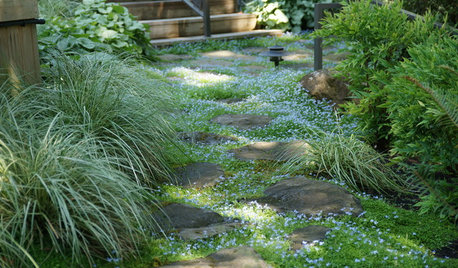

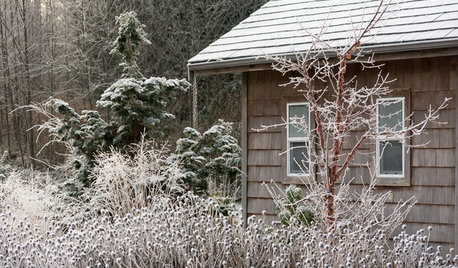
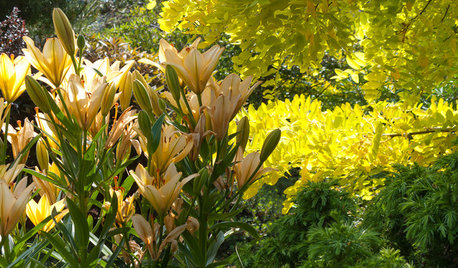
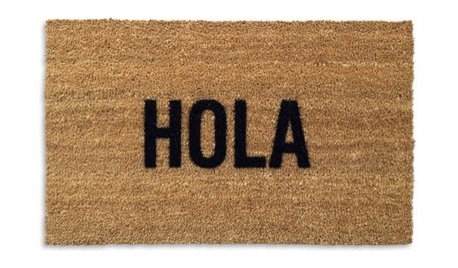
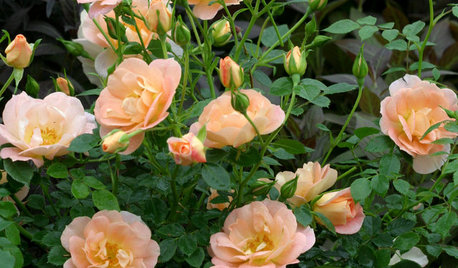







dretutz